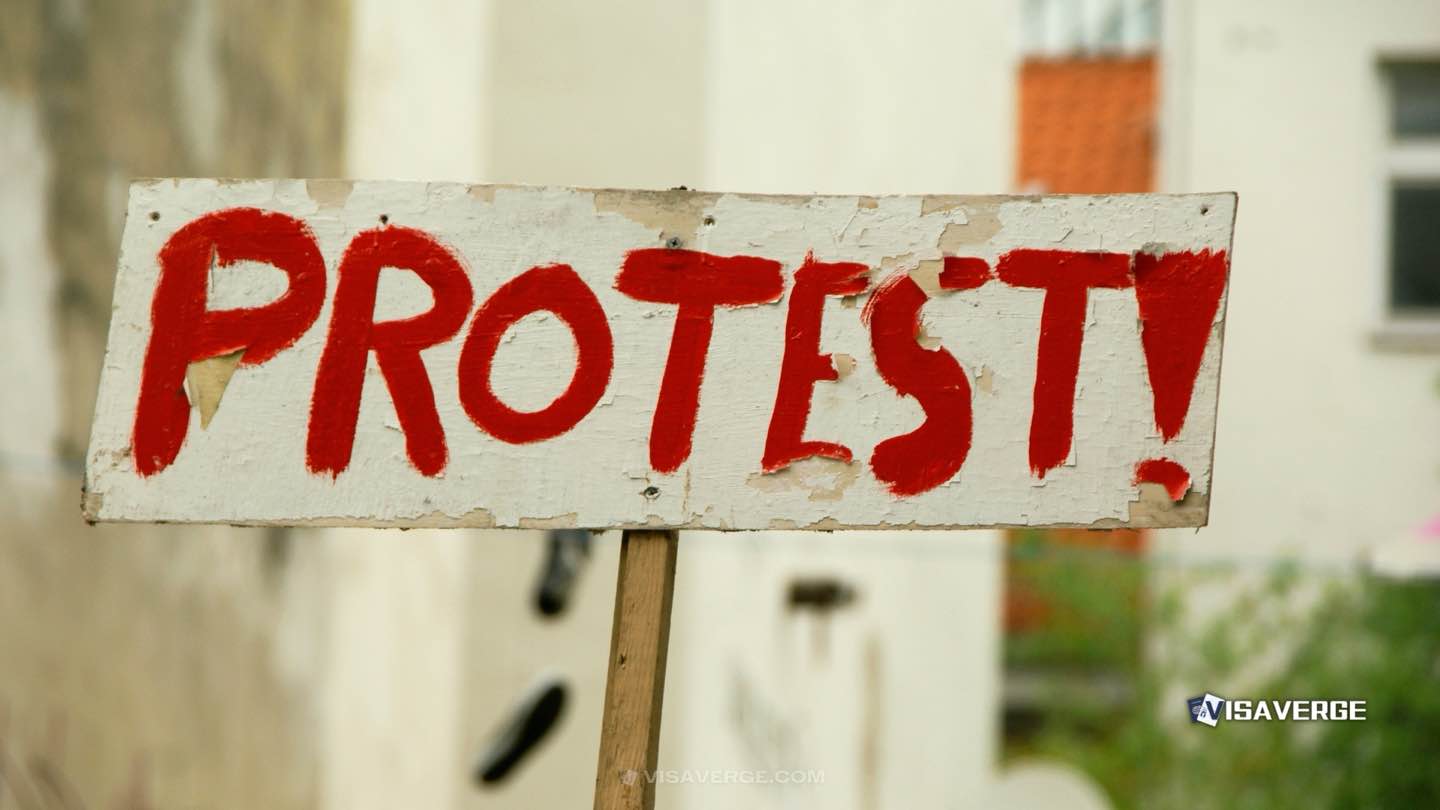(NEW YORK) The Trump administration has indefinitely canceled multiple naturalization (citizenship) ceremonies across New York state, halting the final step to citizenship for hundreds of immigrants who were days or even hours away from taking the Oath of Allegiance. The move affects federal court ceremonies in at least seven counties — Westchester, Rockland, Schenectady, Washington, Broome, Tompkins, and Onondaga — where officials say they were told that local courts are suddenly ineligible to host ceremonies because of alleged problems with court jurisdiction. No replacement locations or dates have been offered, leaving approved applicants in New York in limbo despite having completed every other requirement for U.S. citizenship.
Scope and timeline

The cancellations, first reported in November 2025, mark a sharp break from a decades-long practice in which state and federal judges across New York presided over regular naturalization events in their local courthouses. Local court officials say they received abrupt notices that their upcoming calendars of new citizen swearing‑in sessions were off, without any detailed legal explanation.
The Department of Homeland Security and U.S. Citizenship and Immigration Services (USCIS) have pointed to what they call unmet statutory requirements about which courts may legally conduct naturalization ceremonies, but they have yet to publish specific guidance or a clear legal memo.
Official reactions and demands
U.S. Senate Minority Leader Chuck Schumer has blasted the shutdown of ceremonies as “cruel” and “wrong,” arguing that the administration is hiding behind vague legal claims to block people who have already passed their civics tests, background checks, and interviews.
Schumer and other elected officials are demanding that USCIS Director Joseph Edlow immediately reinstate ceremonies in the affected counties or, at minimum, provide alternate venues so that approved applicants can become citizens without further delay. They say the current posture effectively denies New Yorkers access to citizenship even after they have fulfilled every legal requirement Congress has set.
“Cruel” and “wrong” — words used by Senate Minority Leader Chuck Schumer to describe the cancellation of naturalization ceremonies.
Practical impacts on applicants and families
In counties like Westchester and Broome, court staff who usually help arrange naturalization (citizenship) ceremonies report fielding anxious calls from applicants who had already invited family members, taken time off work, and made travel plans. Instead of leaving court as U.S. citizens, these applicants are being told to wait indefinitely while Washington reviews the jurisdiction issue.
Many applicants had concrete plans dependent on timely naturalization:
– Hopes to vote in upcoming local and national elections
– Plans to sponsor relatives for visas
– Applications for federal jobs that require citizenship
Those plans are now thrown into doubt by the suspension of the Oath of Allegiance events.
How naturalization normally works
Under normal practice, once Form N-400, the Application for Naturalization, the agency schedules the person for a ceremony where a judge or designated official administers the Oath of Allegiance and issues a certificate of naturalization.
Numbered steps in the typical process:
1. File and process Form N-400 (Application for Naturalization).
2. Complete interview, civics test, and background checks.
3. Receive approval from USCIS.
4. Attend a scheduled naturalization ceremony to take the Oath of Allegiance and receive a certificate of naturalization.
USCIS’s public guidance on citizenship ceremonies describes this final step as what turns a permanent resident into a U.S. citizen with full rights, including the right to vote and hold a U.S. passport.
By freezing ceremonies in portions of New York, the administration has created a bottleneck at the very end of the process, with no written instructions on how affected residents might transfer to other courts.
Legal questions and local confusion
Officials in several of the seven counties say they are puzzled because the same courts have hosted ceremonies for years without objection from federal authorities. The sudden insistence on a different interpretation of court jurisdiction has prompted questions from local leaders across the political spectrum.
Critics point to several troubling procedural elements:
– No public legal opinion, memo, or rulemaking notice has been published explaining the change.
– No timeline has been offered for restoring ceremonies.
– No guidance has been provided on reassigning cases to other courts or venues.
Some local leaders wonder whether this is a matter of legal housekeeping or part of a broader tightening of immigration benefits under President Trump. While critics stop short of accusing the administration of outright bad faith, the lack of transparency has fueled suspicion and frustration.
Administrative and paperwork risks
For applicants in Schenectady and Tompkins counties, delays carry practical risks. Many finished interviews months ago and now worry that their FBI background checks could expire, potentially requiring updated fingerprints or new documents.
Lawyers say:
– USCIS has not suggested that approvals will be revoked.
– But long delays increase the risk of paperwork lapses and create serious emotional strain for applicants.
Many would-be citizens in New York have already lived in the country for a decade or more, and they describe the cancellation of their naturalization (citizenship) ceremonies as a painful, humiliating setback.
Broader consequences of delays
Advocates emphasize that becoming a citizen unlocks rights and protections beyond voting:
– Ability to petition for certain close relatives more quickly
– Reduced vulnerability to future changes in immigration law
– Access to some federal jobs and security clearances
According to analysis by VisaVerge.com, disruptions to naturalization (citizenship) ceremonies can have long-term effects on immigrant communities, delaying political participation and economic stability. In the affected New York counties, community groups now must explain to clients why a previously routine ceremony has become a flashpoint in immigration debates.
USCIS communication and public guidance
USCIS has not issued a public press release specific to the New York cancellations. Questions sent to the agency about when ceremonies might resume have, according to local officials, gone unanswered.
The agency’s main website, uscis.gov, continues to describe the standard path from filing Form N-400 to attending a ceremony, without acknowledging the current halt in several federal districts. That silence has fueled further frustration among applicants, judges, and lawyers who say they need clear instructions on whether cases can be reassigned to other courts within New York or to neighboring states.
Current status and outlook
For now, the only certainty is uncertainty for those who expected to raise their right hand in a courthouse this fall. Applicants in Washington and Onondaga counties say they check their mailboxes and email every day, hoping for a new notice with a rescheduled date, but none has arrived.
Until USCIS and the courts in New York agree on who may lawfully preside over naturalization (citizenship) ceremonies, hundreds of future Americans remain citizens in waiting. Their citizenship certificates sit just out of reach today.
Key takeaway: Hundreds of approved applicants in at least seven New York counties are waiting indefinitely for naturalization ceremonies canceled over a sudden jurisdiction dispute. No public legal guidance, timeline, or relocation plan has been provided, and applicants face both practical and emotional consequences while USCIS and the courts work through the issue.
Federal authorities indefinitely canceled naturalization ceremonies in at least seven New York counties, stopping hundreds from taking the Oath of Allegiance. USCIS and DHS cite court jurisdiction concerns but have not published legal guidance, offered alternative venues, or given a timeline. Local officials and senators demand reinstatement; applicants face practical risks like expiring background checks and delayed voting or sponsorship plans. The lack of transparency has created emotional and administrative strain while courts and USCIS sort jurisdiction questions.













